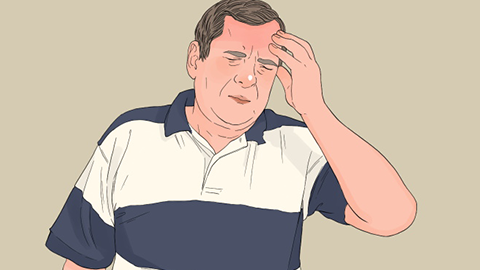Why does drinking alcohol cause headaches?
Generally, the main reasons for headaches after drinking alcohol include blood vessel dilation stimulating nerves, dehydration affecting brain function, irritation from alcohol metabolites, compounded hangover effects, and individual differences in alcohol tolerance. If headaches frequently occur after drinking, attention should be paid to the amount consumed and the body's response, with necessary adjustments made to drinking habits. A detailed analysis is as follows:

1. Blood Vessel Dilation Stimulating Nerves
Alcohol causes dilation of blood vessels throughout the body, including those in the brain. When cerebral blood vessels dilate, they may stretch surrounding nerves and pain receptors, leading to a sensation of head pressure or pulsating pain. This effect is more pronounced with higher alcohol intake, resulting in more noticeable headache symptoms.
2. Dehydration Affecting Brain Function
Alcohol has a diuretic effect, accelerating the loss of bodily fluids and causing dehydration. When dehydrated, the brain tissue loses water, which may lead to mild shrinkage of brain tissue, stretching the meninges and nerves. This process can also disrupt normal brain metabolism, further exacerbating the discomfort of headaches.
3. Irritation from Alcohol Metabolites
During metabolism, alcohol is converted into acetaldehyde, a toxic substance that can irritate blood vessels and nerves and potentially trigger inflammatory responses. Additionally, the metabolism of alcohol consumes B vitamins in the body. Deficiency in B vitamins can impair nervous system function. These combined effects make individuals more susceptible to developing or worsening headaches.
4. Compounded Hangover Effects
Excessive drinking or rapid consumption increases the likelihood of experiencing a hangover the next day, with headache being one of the typical symptoms. During a hangover, the body continues to metabolize residual alcohol and harmful substances, while also experiencing dehydration and electrolyte imbalances. These multiple factors interact, leading to prolonged and prominent headache symptoms.
5. Individual Differences in Tolerance
People vary in their tolerance to alcohol. Some individuals have lower activity of alcohol-metabolizing enzymes, causing alcohol and its metabolites to remain in the body longer, making them more prone to vascular and neural reactions that result in headaches. Others are particularly sensitive to alcohol and may develop headaches even after minimal consumption—this sensitivity is closely related to genetic factors and overall physical condition.
If a headache occurs after drinking, it may help to drink moderate amounts of warm water, light saline solution, or honey water to replenish fluids and electrolytes and alleviate dehydration symptoms. Rest is important; avoid strenuous activity and exposure to bright lights to support recovery. In daily drinking, limit alcohol intake, avoid drinking on an empty stomach, and reduce the speed of consumption to lower the likelihood of headaches. If headaches occur frequently or are severe, seek medical advice promptly to rule out other underlying health conditions.






